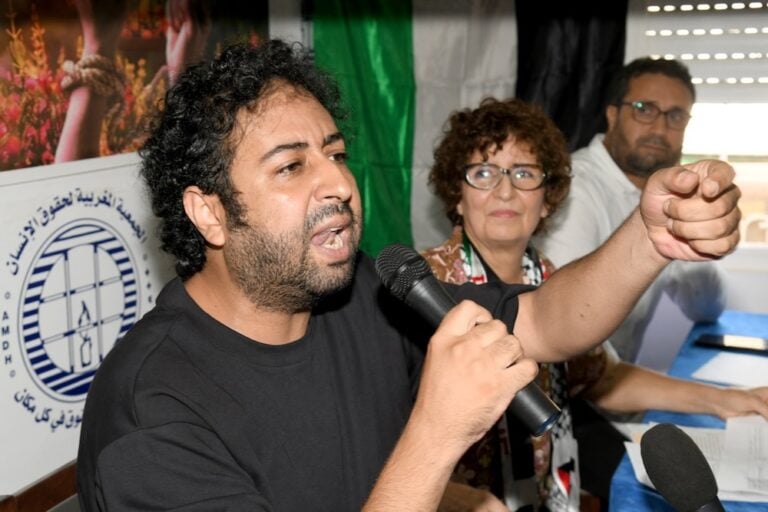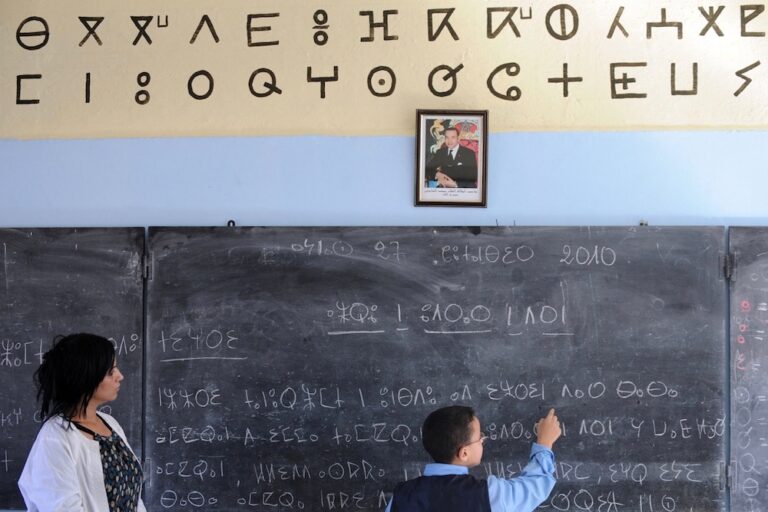(CPJ/IFEX) – The following is an abridged 6 April 2007 CPJ press release: CPJ: Courts, press law undermine Moroccan press freedoms Casablanca, Morocco, April 6, 2007 – A delegation from the Committee to Protect Journalists voiced concern today about a troubling pattern of punitive judicial sanctions that have threatened Morocco’s independent press. Over the last […]
(CPJ/IFEX) – The following is an abridged 6 April 2007 CPJ press release:
CPJ: Courts, press law undermine Moroccan press freedoms
Casablanca, Morocco, April 6, 2007 – A delegation from the Committee to Protect Journalists voiced concern today about a troubling pattern of punitive judicial sanctions that have threatened Morocco’s independent press.
Over the last two years, Moroccan courts have levied stiff criminal penalties and civil damages against independent news publications, effectively banishing two of the country’s most outspoken journalists from their profession, pressuring a third to quit journalism, and sending a strong message to independent-minded journalists who report on sensitive political issues in the kingdom. Moroccan officials and members of the press are also discussing amendments to the country’s press law that would keep in place tough criminal penalties and possibly open the door to new restrictions on the news media.
“These recent cases threaten not only Morocco’s international reputation as an oasis of relative press freedom, but the quality and integrity of its national conversation,” CPJ board member and Al-Jazeera English anchor Dave Marash said. Marash, a member of the delegation, took part in a press conference today that concluded CPJ’s nine-day mission to Casablanca and Rabat.
(. . . )
“The record shows that Moroccan courts are influenced by the government,” said Joel Campagna, who led the delegation as CPJ’s senior program coordinator for the Middle East and North Africa. “It’s clear to us that authorities are putting economic pressure on critical newspapers by exacting exorbitant civil damages in the courts.” These cases have, in some instances, prompted news outlets to soften coverage, CPJ research has found.
(. . . )
Many of the recent press prosecutions underscore the restrictions imposed by Morocco’s 2002 press law, which lays out a variety of potential penalties. A draft press law now under discussion among publishers, journalists, and the government would keep several criminal penalties in place for journalists deemed to have violated vaguely worded bans against offending the monarchy, Islam, and state institutions such as the army and judiciary. Offenders would face the prospect of jail and heavy fines for violating the content bans, which also include critical coverage of the country’s sovereignty over Western Sahara.
The new draft law would also stipulate the creation of a National Press Council whose 15 members would be appointed by the king, journalists, and publishers. One draft version of the amendments grants the council sweeping powers to ban journalists from working in their profession, and levy economic sanctions against newspapers journalists who violated a prospective ethics code. Moroccan Journalist Syndicate head Younes Mujahid told CPJ that the most recent draft has excised these provisions. Both he and Moroccan officials told CPJ that the drafting of the amendments continues and is open to improvement.
“Drafting a new press law is an opportunity for Morocco to decriminalize sanctions against journalists and implement internationally recognized civil remedies for defamation or journalistic error,” Marash said. “It is chance to renew Morocco’s dedication to freedom of speech and access to ideas, opinions, and information.”
(. . . )
For a complete version of the press release, see: http://www.cpj.org/news/2007/mideast/morocco06apr07na.html


